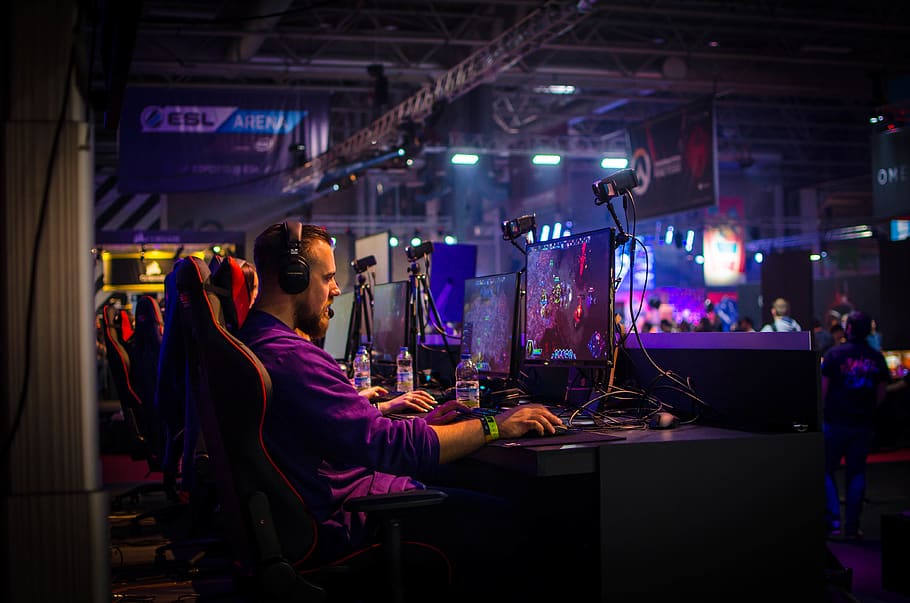The business of online gaming is all about attracting as larger portion of market share as possible while not leaking existing customers to your rivals, meaning it is one of the most competitive spaces in all of business.
Here we take a look at what such companies do to try and convince their loyal players to stick around, rather than venturing away to pastures new. All manner of games companies will be under the spotlight, from those that host classic games like chess, slots, and backgammon, all the way through to those that create battle royale and open world games for consoles and PC.

Listening to the Customer is Key
One of the most consistent criticisms leveled at online gaming companies over the years has been that they do not take into account the opinions and requests of their most loyal players.
This can lead to many gamers becoming disillusioned with a company that appears not to be listening, which in a world where social media gives everyone’s opinion weight, can be a recipe for disaster. It has very quickly become apparent as to which companies are open to ideas and suggestions from their player base, and those which are a closed shop.
Consistent Satisfaction
For new customers, the games themselves on a site or app should be enough to keep them coming back time and again, but for more experienced players – who will be aware of competitors in the market – it is certainly worth companies providing added flare to their offering. This can come in the form of bonuses, free spins, or free upgrades with some of the best in the business at creating such promos being established online game providers like Steam, PokerStarsCasino, and Chess.com. It is this sort of consistent promotional work that can maintain a player base over a long period of time, with many gamers appreciating consistency.

Valuing Existing Customers as Much as New Ones
Nothing gets the backs up of existing players when a promotion or incentive that is available for new players is not made available to them. To avoid this potential backlash, it is vital that marketing teams target their campaigns correctly, so that existing players are not bombarded with promotions which they then find they are ineligible for.
The other easy way to avoid this happening is for gaming companies to actually value their existing customers as much as their new ones, by treating both sets of players equally.
New Game Versions Keep Things Fresh
Another way to keep things interesting for players is to bring out a new version of a game. This is a tried and tested solution for companies that hold the rights to huge gaming brands like GTA or Super Mario.
Everyone Likes Something for Free
There are some online gaming companies who pride themselves on always having offered their services for free, but this can soon turn sour if a customer base, accustomed to life in the free lane, are suddenly asked to stump up hard earned money.
Showing how things should be done in this regard are classic game sites like chessbase.com, which enable players to use their platform for free but then also offer a paid ‘premium’ option, which loyal players will be more likely to pay for if the premium version is not forced down their throats.

Migrating Players at the Right Time
One of the most difficult things that a gaming company can ever do is transitioning players from an outdated software or web client in the hope they will seamlessly adapt to a new one. Timing and due diligence is everything in this regard, with strong customer support being required to help old-school players through the process rather than losing them for good.
Opportunity to Unlock a New Game Early
Another wonderful technique that some gaming companies have employed is releasing a new game to only their most loyal fans, in an attempt to make them feel extra special as well as enticing others to become loyal followers of a certain brand or product.
One of the best examples of this is the way in which Valve hinted at releasing their much-anticipated Portal 2 game. As part of an April fools’ joke, the company made it appear as though they had released Portal 2 to those gamers who bought another title called Potato Sack. In the end players quickly realized they had been pranked, but just being in on the joke, and knowing that such a thing could happen for real in the future, was enough to ensure that when Portal 2 was released it got all the hype and attention it so richly deserved.

Loyalty Competitions
Another way to make a customer feel special is rewarding them for the amount of time they spend on a particular site or app. This is typically done by giving players the ability to collect points which then count towards a competition or leaderboard, which then divvies up prizes and special bonuses at the end of a day, week, month, or even a year. This way, even if players are losing in-game, they are given the sensation that the very act of playing is in some way a productive venture, and therefore one they should feel good about pursuing.
Prequels Entrance Diehard Fans
As well as sequels always being welcomed by diehard gamers, prequals which delve deep into the backstories of beloved characters are equally sought after. Some great examples of this include Final Fantasy 7 Crisis Core, Assassin’s Creed IV: Black Flag, and Metal Gear Solid III: Snake Eater, all of which had gamers invested in them as much for their intriguing storylines as their enticing gameplay.
Related Posts:
- How to Sell More When Customers are Working From…
- 10 Common Web Designing Errors That Drive Away…
- How to Prevent Online Companies from Collecting Your…
- Top 5 Defenses Trucking Companies May Bring After a…
- How OKRs Can Help Companies of All Sizes Improve…
- Web Design for Power Washing, Pressure Washing, and…







